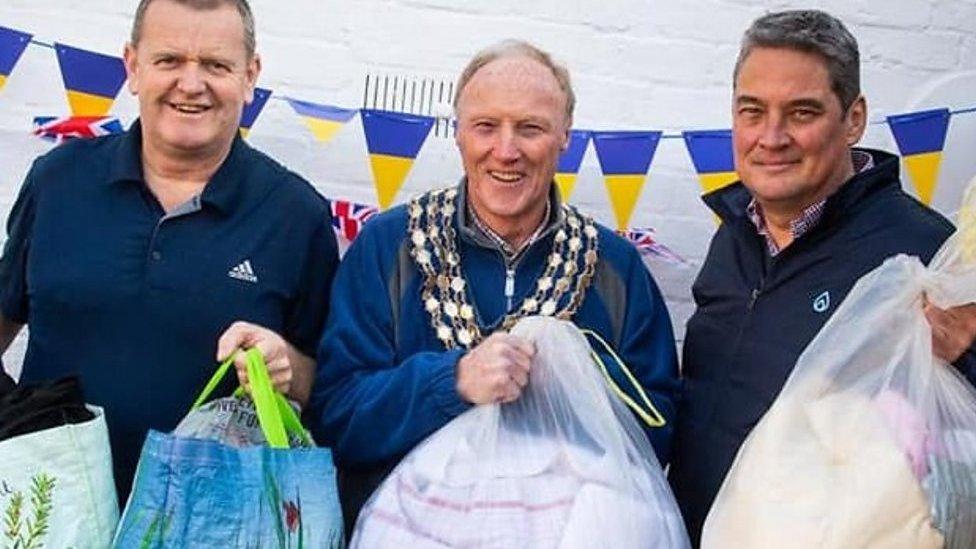Refugees say expats make Coventry 'like a little Ukraine'
- Published
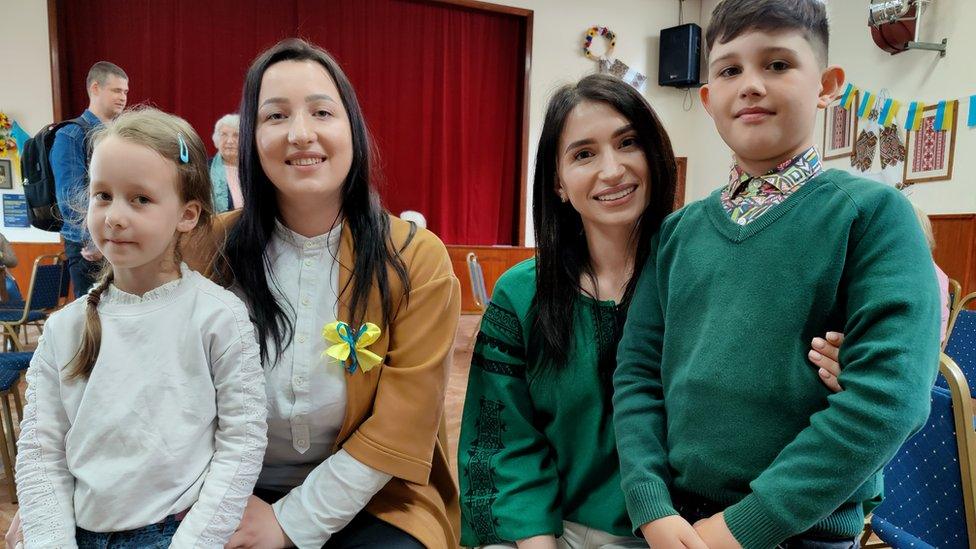
Olya Pryimak and Nataliia Dutchak said they were 'so thankful for the warm welcome' they'd received
Ukrainian refugees arriving in Coventry said expats who came to the city generations earlier had helped them settle into new lives.
Many Ukrainian families came to the UK after World War Two, seeking a new life following Nazi occupation.
Now many second and third generation families are lending their bilingual skills to interpret for new arrivals.
Nataliia Dutchak said their welcome had made Coventry feel "like a little Ukraine".
Some of them are taking part in a free emergency interpreting course by Aston University, which was set up after seeing very few registered Ukrainian speakers across the country.
The UK's Institute of Translation and Interpreting has less than a dozen registered Ukrainian members, compared to French which has over 600.
Members of the established Ukrainian community are hosting a fortnightly coffee morning in Foleshill which is welcoming newly-arrived refugees, as well as those who remember all too well what it's like to come to an unknown country.
'We were overwhelmed'
Nataliia and her sister Olya Pryimak left their husbands and family behind and left for a city they'd never heard of.
They now reside in a flat in Coventry city centre together with nine-year-old son Liubomyr and Yana, six.
Naitaliia said they were concerned about coming to Coventry as they had very little information about what to expect.
"Finally when they arrived they were overwhelmed and really pleased to find what actually exists here," her interpreter said.
Olya, 29, added: "As the saying goes, everywhere is nice but there's no place like home."
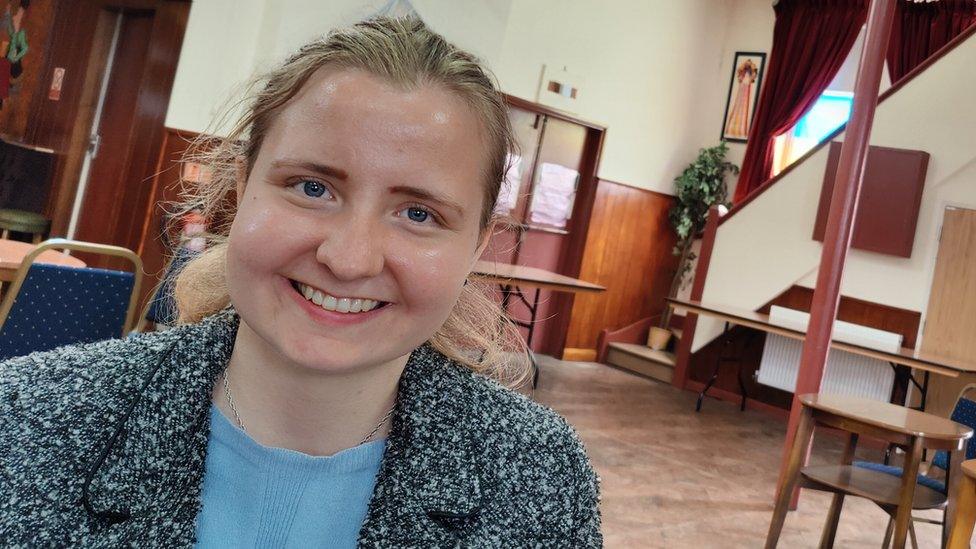
Oksana studied for a Masters degree in law before fleeing Kyiv
Lawyer Oksana Kohutt made the long journey from Kyiv to Coventry by bus with her mother and is now living with her sister in the city.
The 25-year-old is trying to find work but is struggling due to the differences between Ukraine and UK law.
"I think for most Ukrainians the most important problem is their level of English and language," said Oksana, who is fluent in English.
"Language offers many opportunities - from schools to getting work - everywhere.
"It's not only about the language but also the culture and you can explore the world and feel comfortable."
Oksana is looking for temporary work in administration, but said, for now, "it's most important that I'm safe and then, who knows?"
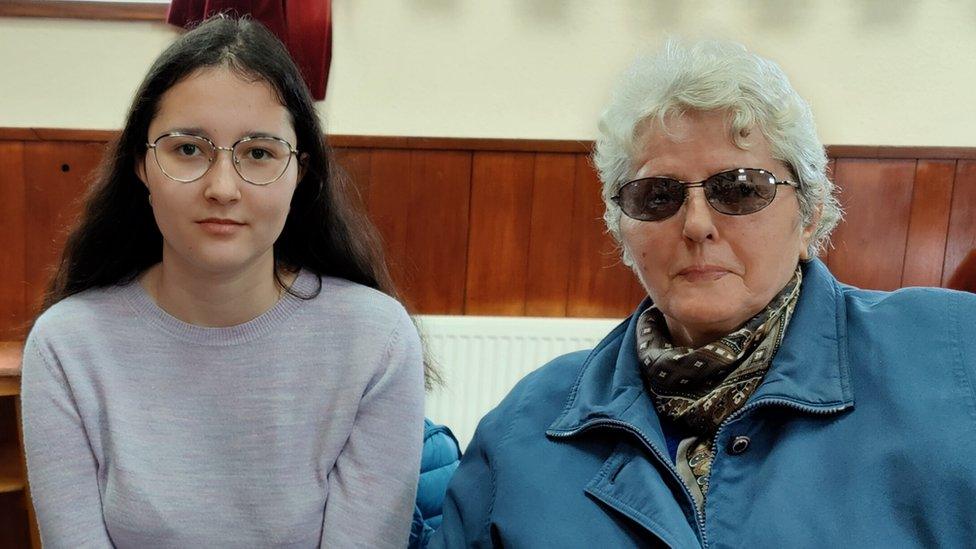
Sofiya was born during World War Two in Ukraine moved to Coventry 25 years ago
Sofiya Jaworiwsky was born as bombs rained down on her beloved homeland during World War Two.
Her own mother, she said, was a "hero" for staying in Ukraine, bringing up three children during Nazi occupation.
She moved to Coventry as a child but 70 years on, she is a helpless spectator as her family endures a similar ordeal.
Her daughter and two grandchildren fled the war in Kyiv earlier this year.
"It's very hard. My granddaughter cries - we all cry," said Sofiya.
"We had Ukraine independence for more than 30 years and now we collapse.
"Too many people are dead and many children now have no father. It's a very bad situation," said Sofiya.
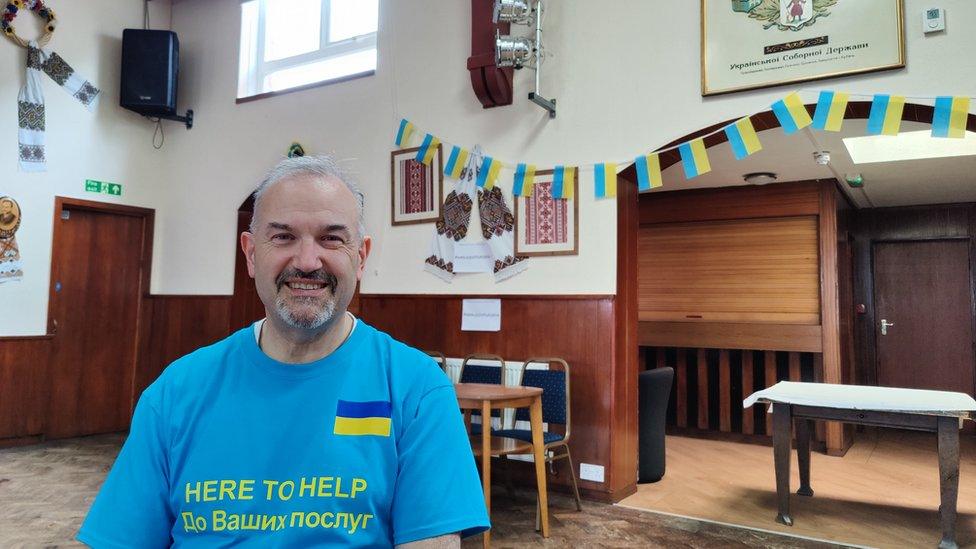
Peter is taking part in a free interpreter course with Aston University in Birmingham
Peter Luczka was born to Ukrainian parents who fled the country during the 1940s and is interpreting for those who speak little English after fleeing Russian invasion.
"It's very heart warming to know that what we're doing is actually helping them to integrate in to the Ukrainian community in Coventry, to facilitate their entry and do as much as we can to make them feel at home," he said.
Peter said there had been complications in trying to access biometric testing, Universal Credit and navigating a "complicated system".
"I think 'wow' - I'm supposedly someone who can speak the language and can understand and fill in an online form, but I didn't find that easy - so how is a new arrival and someone who doesn't speak the language going to find it?"
Dr Emmanuelle Labeau, who specialises in linguistics at Aston University, is running online workshops for would-be interpreters in the evenings.
"There is a national register of interpreters and we looked at that and you realise that in the West Midlands region there are no registered interpreters for Ukrainians - the closest are around London," she said.
"This encouraged us to offer that support for Ukrainian speakers in the community because we could feel that there is a need at some point for support for those refugees so we wanted to equip them with the relevant linguistic skills."
But she warned that the country was potentially facing a "language crisis" due to fewer people taking up higher level education, despite the West Midlands having a vast heritage of cultures.

Follow BBC West Midlands on Facebook, external, Twitter, external and Instagram, external. Send your story ideas to: newsonline.westmidlands@bbc.co.uk, external
- Published6 June 2022
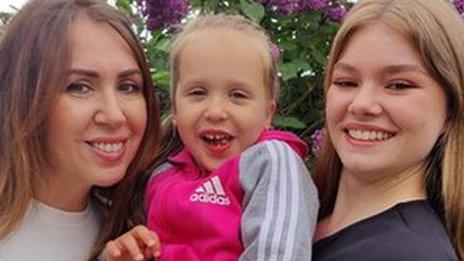
- Published17 May 2022
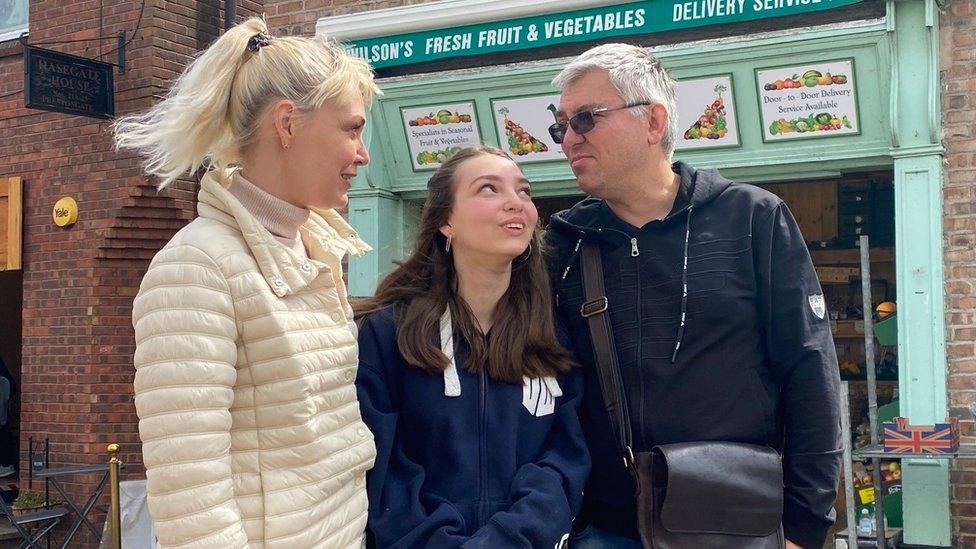
- Published4 May 2022
